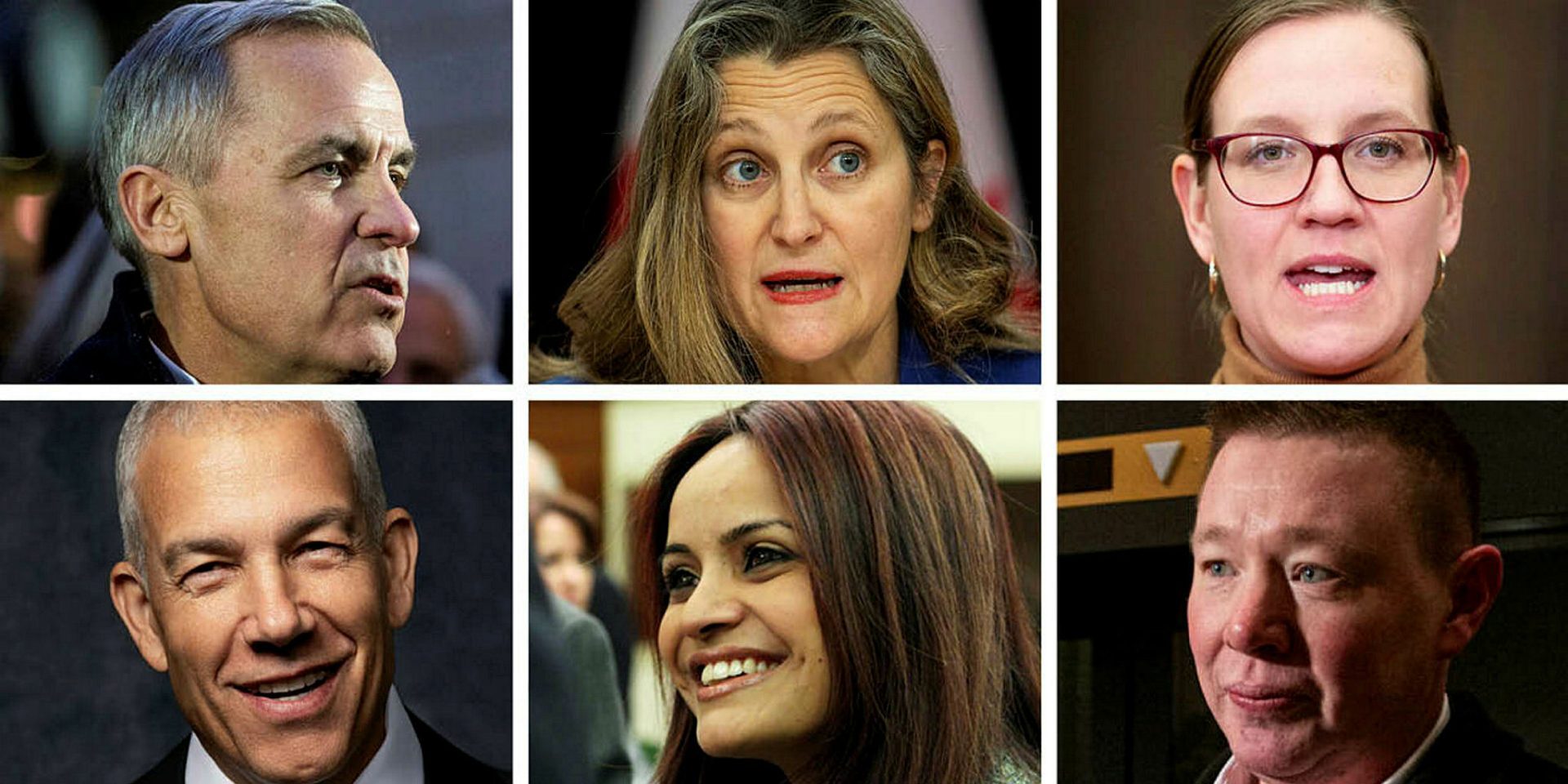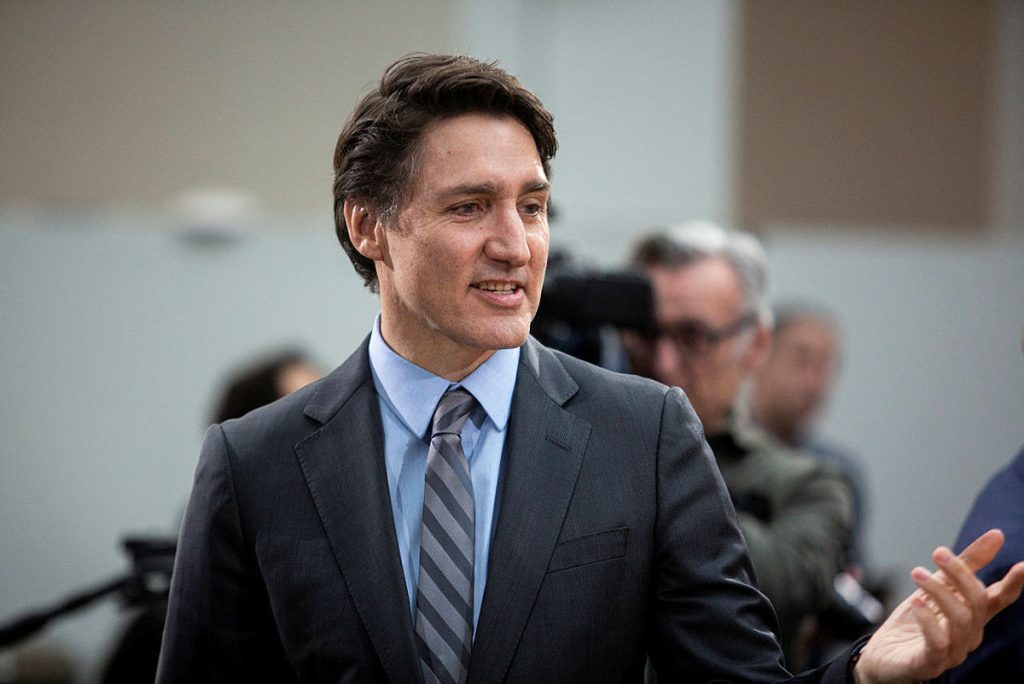Jan. 30 deadline for $50,000 non-refundable deposit narrowed Liberal leadership field, Battiste drops out, backs Carney

The field of candidates for the federal Liberal leadership contest narrowed with the arrival of the Jan. 30 deadline for the $50,000 non-refundable deposit when Liberal MP Jaime Battiste dropped out of the race yesterday.
Battiste (Sydney-Victoria, N.S.), the first Indigenous candidate to run for the federal Liberal leadership, said he was proud to throw his hat in the ring, but after careful consideration, decided the best way to advocate and advance his priorities was to back leadership candidate Mark Carney. Battiste released his statement at 5:07 p.m. on Jan. 30.
Earlier in the day yesterday, one Liberal source told The Hill Times that it’s tough to raise money, especially when it’s such a short race.
“I know how hard it is to raise money,” said one senior Liberal helping out one of the candidates. “You better have a pretty strong Rolodex of people who are willing to pay. You better have 200 supporters who are willing to give you the maximum allowed.”
According to Elections Canada rules, an individual can donate a maximum of $1,750 to a political party, $1,750 to all riding associations, nomination contestants and candidates of each political party, and another $1,750 to all leadership contestants in a particular contest.
To enter the Liberal leadership contest, each candidate must submit a $350,000 deposit to the party. Of this, $50,000 is refundable and has already been paid by the six approved candidates on Jan. 23, while the remaining $300,000 is non-refundable. A second $50,000 instalment is due by Jan. 30, followed by two payments of $125,000 on Feb. 7 and on Feb. 17. Additionally, candidates can spend up to $5-million on campaign expenses.
While the two-month leadership contest’s spending limit seems high, a party spokesman said that candidates may face inflated vendor costs due to tight deadlines, and a lower cap might restrict access to necessary services.
“For your awareness, the CPC spending limit in 2022 was $7-million,” wrote Parker Lund, Liberal Party’s director of communications in an interview with The Hill Times. “In a short time-frame, campaigns could endure increased or premium prices from vendors—and the committees didn’t want to add additional obstacles within the expedited race.”
According to leadership election rules, all contribution cheques must be sent directly to the party office. The party does not take a share of the first $500,000 raised, but imposes a 25-per-cent fee on any amount beyond that. Also, candidates cannot exceed a debt limit of $200,000 at any time.
To qualify in the Liberal leadership race, seven candidates submitted their paperwork and a $50,000 deposit to the party. Of these, six have been approved, while one has been disqualified.
The approved candidates include former Bank of Canada and Bank of England governor Mark Carney, former deputy prime minister Chrystia Freeland (University-Rosdeale, Ont.), former government House leader Karina Gould (Burlington, Ont.), businessman and former Montreal Liberal MP Frank Baylis, and former Brampton Liberal MP Ruby Dhalla.
The Liberal Party did not approve the candidacy of Liberal MP Chandra Arya (Nepean, Ont.), but has not offered a specific reason. In an emailed response to The Hill Times, the party cited section 4(c) of the leadership rules that state a candidate can be disallowed to seek the party’s top job if they are found to be “manifestly unfit for the office” of the Liberal leader. The reasons could include any “public statements, past improper conduct, a lack of commitment to democracy, or other reputational or legal jeopardy,” according to the rules.
After his disqualification, Arya issued a statement on social media platform X on Jan. 26, blasting the party for its decision, adding that the move raises serious questions about the “legitimacy” of the leadership contest.

“Today, I was informed by the Liberal Party of Canada that I will not be permitted to enter the leadership race,” wrote Arya. “While I await their official communication, I am carefully considering my next steps. This decision raises significant questions about the legitimacy of the leadership race and, by extension, the legitimacy of the next Prime Minister of Canada. I remain steadfast in my commitment to working hard for the benefit of all Canadians. With a focused approach, I will continue striving to ensure a secure and prosperous future of the generations to come.”
Arya was not available for an interview for this article. Since his X post, he has not publicly announced what his next steps would be.
Meanwhile, Liberal insiders are closely watching which of the six candidates can make the first non-refundable deposit. Until Jan. 30, candidates can remain in the race and benefit from media attention since their deposit is refundable. However, after Thursday, those without sufficient support or fundraising capabilities risk financial losses.
“Out of the six, at least one candidate will drop out because raising $350,000 is an uphill battle,” said a former senior Liberal.
In an earlier interview with The Hill Times, Battiste had said he was receiving strong support for his candidacy from Indigenous and other communities across the country. To conserve campaign funds, he said he was limiting travel and relying primarily on technology for outreach. Describing himself jokingly as a “telemarketer on steroids,” he said he wakes up daily to connect with as many people as possible to ask for their support and to raise funds. However, the Nova Scotia MP would not confirm whether he would have enough money to make the non-refundable $50,000 deposit.
“I never tell media how much I have got, to keep my poker cards close to my chest, but I’m looking forward to continuing,” said Battiste.
He told The Hill Times that if he ever feels his campaign momentum was slowing down, he would reconsider his decision to continue his campaign.
Baylis told The Hill Times that he has already raised enough funds to cover his second deposit, and that he is confident he would secure the full $350,000 needed, along with additional campaign expenses. In the coming days, he plans to travel across the country to meet with supporters and to attend fundraisers. Recently, Baylis completed a tour of Quebec, Ontario, British Columbia, and Alberta.
“It’s going amazing, it’s going very good,” said Baylis, who’s launched his campaign on Jan. 30 in Montreal.
The Liberal leadership election will be held on March 9 in the newly reconfigured 343 federal ridings, though it remains unclear whether voting will take place in person, online, or both. This race will mark the first election under the new ridings, albeit as an intra-party contest. The next general election will also follow the new 343-riding structure, whereas the House currently has 338 ridings.
Editor’s note: This story was updated at 5:41 p.m. on Jan. 30 to report that Jaime Battiste dropped out the race on Jan. 30.
The Hill Times






 LICENSING
LICENSING PODCAST
PODCAST ALERTS
ALERTS













